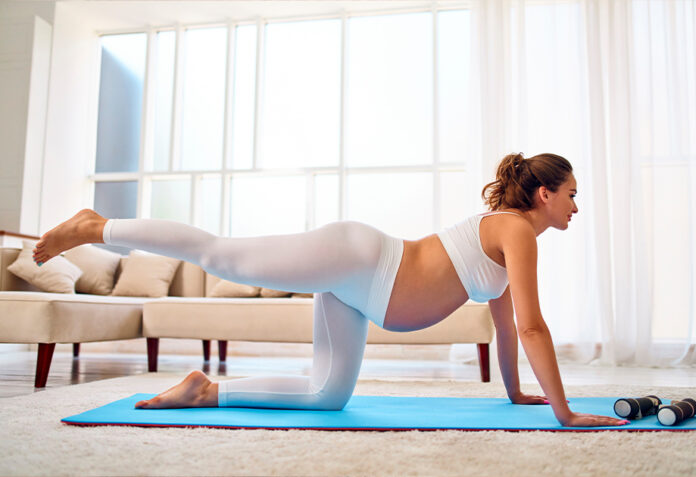The act of giving birth to a child is a life-changing experience that affects a woman on both a physical and emotional level. Because your body goes through so many changes after giving birth, it is really necessary for you to take good care of yourself throughout the postpartum period. Exercising after giving birth is a great way to speed up healing, and it offers a wide range of other health advantages as well. The following is a list of the many advantages that Exercise for Postpartum Recovery.
- Strengthens pelvic floor muscles
Your pelvic floor muscles may become stretched or weaker as the labor and delivery process progresses. This can result in urine incontinence as well as other problems with the pelvic floor. The strengthening of these muscles by exercise, notably activities targeting the pelvic floor, can help avoid and even alleviate the symptoms of the aforementioned conditions.
- Promotes weight loss
Some pregnant women experience weight gain, which can make subsequent weight loss more challenging. Exercise can facilitate weight loss by elevating your metabolism and increasing the number of calories you consume. Additionally, it can help you improve your overall body composition and tone your musculature.
- Improves Mood
Exercising can help boost your mood during the postpartum period, which can be an upsetting time for new mothers. Endorphins, which are natural mood boosters, are released into the body when you exercise. It also has the potential to make you feel more assured and in command of your physical self.
- Reduces risk of postpartum depression
Postpartum depression is a prevalent disorder that affects a large number of new mothers. Exercise can reduce the likelihood of developing postpartum depression due to its positive effects on mood and self-esteem as well as its ability to alleviate tension.
- Increases energy levels
Exercising can help raise a new mother’s energy levels, which can be helpful because new mothers frequently feel exhausted. It has the potential to enhance circulation, which in turn can assist in oxygenating the body and reducing feelings of exhaustion.
- Promotes better sleep
Getting enough sleep can be difficult for new mothers, but regular exercise has been shown to enhance sleep quality. It can aid in the regulation of your circadian rhythm, the alleviation of tension, and the enhancement of your overall sleep quality.
- Improves cardiovascular health
Your cardiovascular health can be improved by exercise, which in turn can lower your risk of developing heart disease as well as other health concerns. Additionally, it has the potential to boost your stamina and endurance, both of which can be helpful in meeting the challenges of parenthood.
- Increases bone density
The process of giving birth is associated with a decrease in bone density, which increases the risk of osteoporosis later in life. Exercise, and more specifically weight-bearing exercise, can increase bone density and reduce the risk of osteoporosis.
- Promotes bonding with your baby
Additionally, physical activity is a wonderful opportunity to spend quality time with your child. You and your child might participate in a mommy-and-me yoga class, take a stroll with your child while they are in a stroller, or even go for a walk together.
Exercise is a crucial component of postpartum recovery, and its benefits are numerous. Exercise can strengthen your pelvic floor muscles, promote weight loss, improve your mood, reduce the risk of postpartum depression, increase your energy levels, promote better sleep, improve your cardiovascular health, increase your bone density, and enhance your bond with your baby. Before beginning an exercise program, it is essential to commence slowly and listen to your body, as well as obtain clearance from your healthcare provider. By incorporating regular exercise into your postpartum routine, you can facilitate your recovery, feel better, and enhance your overall health and well-being.




